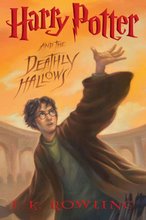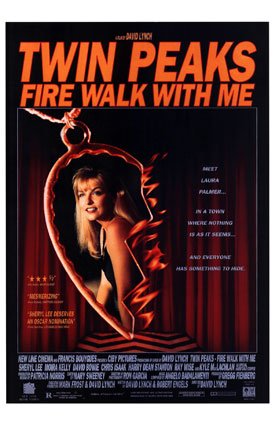These books, which my mom smartly kept, have been sitting on her bookshelves for a few years, collecting dust and looking elegantly antique-y sitting amongst her more modern coffee table book collection (most of which have to do with sites in Europe and/or Princess Diana, who continues to live on here as my mom's Anglo-hero in this condo in Arlington, Virginia).
While loafing around one day last week before Christmas, I picked up the oldest looking book and began to rifle through it.
It's missing its cover, but here's the front title page:

It's called The Experienced English Housekeeper by Elizabeth Raffald.
If you click on the picture and make it bigger, you will see that it says it was printed in 1769. I figured that meant the date on which it was originally printed and assumed we had a reprinted edition.
I started flipping through the pages to see exactly what the experienced English housekeeper should have been doing circa 1769, and I discovered that she was cooking some rather unsavory recipes...
Like pig sauce...

... and dressing a pig's pettitoes.
Here's how a lady should boil a tongue...

... mmmm!! A dry tongue with currant jelly! Perfect for New Year's!
And even better... roasting large eels with pudding in the belly...

...you know, just take the guts out and scrape the blood clean.
Pudding in the belly was a popular dish apparently...

... I think these people ate nothing but meat!
As you can see, it's over 300 pages of totally revolting, yet highly intriguing, reading. After I finished scanning the all-meat recipes (and I should add that the book also includes a rather large "confectionary" section as well, which includes recipes for cakes and ice cream, leading me to believe my ancestors survived solely on pig, fish, and sweets), I stumbled upon this:

... which appeared to be the autograph of the author signed in ink (not a mimeograph), as the ink bled through the page onto the page behind it.
I started to get a wee bit excited then.
I immediately ran a several-hour-long Google search (I told you I had spare time on my hands these days) to look for any nerdy scrap of information I could find on Elizabeth Raffald, only to discover she was one of the most popular cookbook authors in 18th century England (basically the original Julia Child). Her cookbook was so popular that it was reprinted multiple times into the 19th century. However, only 800 original first edition books were printed, and all of them were signed by Miss Raffald herself. And my grandmother had one of them!!!
Here's a sample of the information I found...
On this rare book site, it says:
"Raffald (1733-1781) was, after Hannah Glasse, the most celebrated English cookery writer of the 18th century. She was the daughter of John Whittaker of Doncaster, and was for fifteen years employed as housekeeper to Lady Elisabeth Warburton of Arley Hall, Cheshire, to whom she dedicated her book. In 1763 she married her employer's gardener, John Raffald, and by him had fifteen daughters. In 1764 she became a confectioner in Manchester, and shortly afterwards established a cookery school for young ladies, which she ran in her shop. Then, in 1769, just after she published her book, she temporarily took over the licence of the Bull's Head in Market Place, Manchester, before taking over the King's Head in Chapel Street, Salford, in 1770; both were old and famous inns. In 1771, she helped to found Salford's first newspaper, Prescott's Journal, and to become the adviser to, and part-owner of, Harrap's Mercury. She also found time to compile the first Manchester Directory, which appeared in 1772."
Here is Miss Raffald herself...

I was beside myself with excitement at this point. I wondered what the book (even without a cover) could be worth! I scouted around for antique cookbook experts (and yes, they do exist) and found a place in Maryland that specializes in cookery of yore. I drafted an email to the proprieter of the store, telling him about my find, and here was his response a few days later:
Good to hear from you, and congratulations on having a copy of the very rare first edition of Mrs. Raffald's Experienced English Housekeeper. It was a very popular book--reprinted up to 1825, but it was also frequently pirated. That is why the author signed copies. An American edition was published in Philadelphia in 1801. Most English editions have an engraved frontispiece portrait of the author.
It is well worth getting rebound. Just do it in leather and make sure it's done right. Someone I would recommend is *** in Winchester. She does work for Georgetown University and many other clients, and she's not expensive. She should be at the Washington Antiquarian Book Fair in Rosslyn this March, and you could consult with her then. In the meantime, the paper won't deteriorate much if you keep it in the dark and not in a damp environment.
Let me know if I can be of further help.
Willis V.
How cool is that?!? Unfortunately, due to the fact that it's missing its cover, it's only worth about $300, but my mom says she will get it rebound, which will increase its value. Better yet, this coming June, PBS's Antique Roadshow is coming to Baltimore, and I have every intention of trying to get on the show with this very cool find!
The true mystery is that no one in my mom's family can figure out where the book came from. My grandmother's father was 100% Bavarian/Austrian so we know it didn't come from his side of the family. Her mother was 100% English, but most of her family were poor farmers who had been estate gardeners in England -- so we can't figure why they would have brought this cookbook all the way from England in the 19th century, as we're not even sure if they could read. Apparently there were some members of that family who were "city people" from Leeds (near Manchester) who came over, but they were cousins and not immediate relatives.
The only hint we have as to the book's ownership can be found on a blank front page of the book, behind the title page, in which it states in very old-fashioned writing: "This book belongs to Miss Elizabeth Lambert of Manchester." But this is the only hint as to its origins. And she's nowhere in my mom's family's geneology charts.
I'm personally starting to wonder if some sad little peasant relative ripped off the book from a wealthy employer, but I suppose that's a rather dark suggestion. Ehhh, whatever... just look for me on "Antiques Roadshow" this summer!!!




3 comments:
That might be the coolest thing ever! Congrats on the find! Maybe one of your ancestors was friends with her husband - wasn't he a gardener - and gave it to them as a present? Who knows - either way it is very cool!
That's really cool! You should totally make the pig sauce.
And she had 15 kids in 18 years? Sheezus. No wonder she died at 48. I guess the meat/sweets diet makes you really fertile.
Let us know if you make it on Roadshow!
Hi,
I was searching the net on Elisabeth Raffald and came across your site.
Probably not everything in the book is as tasty as we are used to, but I have done quite some reading about food in the 18th century and I am convinced there must be some fabulous recipes in that book that are totally forgotten by now.
Here's a link you might like to see: http://www.youtube.com/watch?v=QJkztBqLVao
Although it is none of my business, I hope you won't sell the book but keep it in your family.
Congratulations with this great book!
Hug,
Gee
Post a Comment